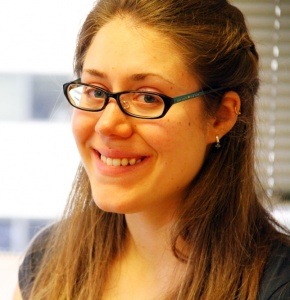 Before I joined the Aga Khan Foundation U.S.A. (AKF USA) as the Communications Fellow, I spent a year teaching English to college freshmen in Morocco. In our classroom at Mohammed V University in Rabat, my students told me about the obstacles that prevented girls in rural areas of Morocco from accessing education—few parents would allow their female children to make miles-long walks from home to school unattended. Safety was a big concern. My classes, however, maintained a gender balance that reflected our urban setting. From Rabat, I didn’t understand who was addressing development problems, such as education access, in other parts of the country or how they were being addressed.
Before I joined the Aga Khan Foundation U.S.A. (AKF USA) as the Communications Fellow, I spent a year teaching English to college freshmen in Morocco. In our classroom at Mohammed V University in Rabat, my students told me about the obstacles that prevented girls in rural areas of Morocco from accessing education—few parents would allow their female children to make miles-long walks from home to school unattended. Safety was a big concern. My classes, however, maintained a gender balance that reflected our urban setting. From Rabat, I didn’t understand who was addressing development problems, such as education access, in other parts of the country or how they were being addressed.
At AKF USA, I had the opportunity to be exposed to the people who carry out development work and came to better understand how communities can participate in solving problems like access to education. This question really came to life for me when Program Manager Beth Kuttab traveled to Lisbon for the Aga Khan Foundation Workshop on Gender Equality in Programmes. Aga Khan Development Network (AKDN) staff members at the workshop each brought pictures from various international projects and asked, “Where are the women?” to foster discussion. Beth asked me to put together the collection for AKF USA.
As I selected images of our work for Beth to bring to Lisbon, I asked myself, “Where are the women?” of each one, and found that question to be too simple. Given the complexities of the communities where AKF works, it seemed reductive to expect simple answers. In our pictures, women are often present and active. Instead, other questions can lead to richer answers, such as: “What role are these women fulfilling?” “What can they access and through which means?” “Do men and women have different expected roles in this situation?” and “How are women impacted by our programs?”
Last month, International Women’s Day presented an opportunity for me explore those questions and ask, “Where are the women?” in a much more constructive way.
Usually, the work I do as part of the Communications team focuses on the communities where we work: girls in school, women joining agricultural training programs, communities equipping women with disaster preparedness skills. None of these programs would be possible without the tireless women in the AKDN offices worldwide. From my corner in the AKF USA office, I saw International Women’s Day as an opportunity to reach out and ask them to share their work and what inspires them.
My request yielded an overwhelming amount of responses from the women I contacted. From Afghanistan to East Africa, women were ready to talk about the work they did and why. The eagerness of my AKDN colleagues to contribute to a campaign on the other side of the world highlighted the uniquely connected nature of this development network.
These women told me about their professional work and the personal decisions that had played a part in laying their paths. One woman from Afghanistan wrote, “Initially my husband was not fine with me working for an organization, which is a belief shared by many men in my native community. However, my persistence and yearning for learning and experiencing new things eventually convinced him to let me work.”
Another said, “The work is tough and the hours are long, but seeing the tangible and real effects of my work really motivates me and inspires me to continue doing it.”
All of the women were inspired by the milestones their projects had reached as well as the hurdles they are striving to overcome. One woman’s story about convincing a local preschool to accept a disabled boy (who had previously been rejected from the school) demonstrated to me the pluck and dedication it takes to do good. AKDN women are doing that good.
Hearing what inspired these women, in turn, inspired me and made me to appreciate again Aga Khan Foundation’s commitment to gender equality within its programs and internal operations. I knew AKDN women were dedicated, but I was blown away by the sincerity and drive they expressed to me.
International Women’s Day let me see our work from both sides—from my desk here in the D.C. office and through the eyes of the women of AKDN, from Nairobi to Khorog.
By Linda Flynn, Professional Development Fellow at the Aga Khan Foundation U.S.A.